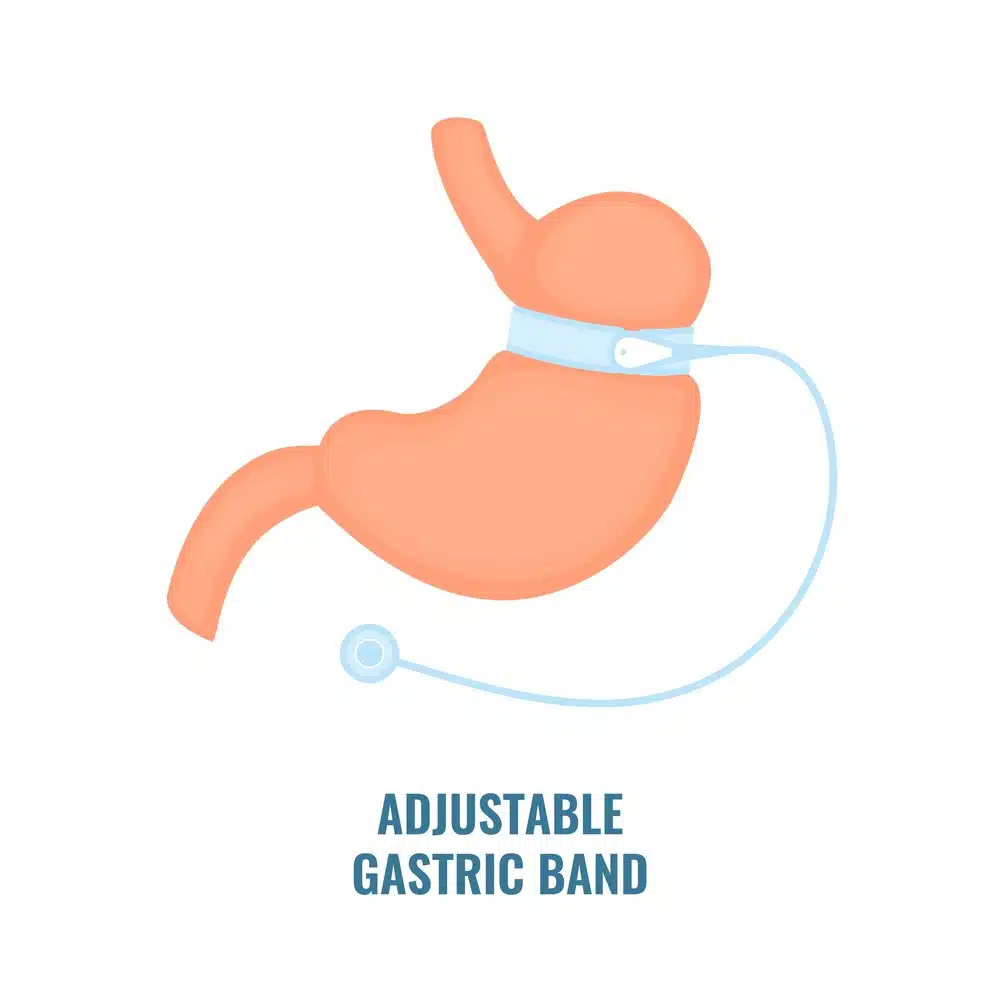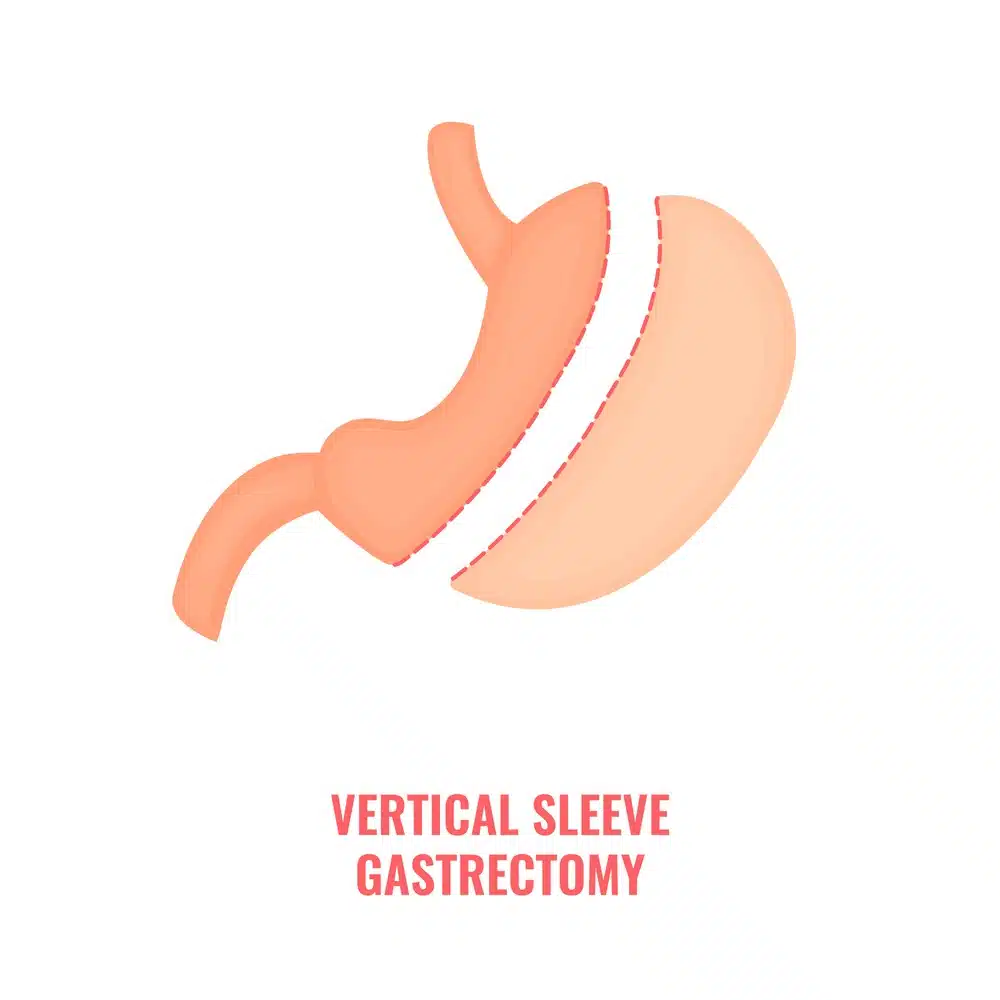Bariatric surgeons utilize different techniques to treat obesity and prevent its associated health issues. In order to reach the right decision, people often compare these techniques, especially Lap Band vs gastric sleeve.
Although both techniques can help you battle obesity and shed pounds rapidly, they differ from each other in terms of mechanism, risks, and cost. They both can change the stomach’s capacity for food but accomplish this task in distinct ways.
In any case, doctors may suggest a gastric band or gastric sleeve in Turkey to people who seek significant weight loss. Both are extremely helpful for the prevention of health issues related to obesity, such as diabetes, high blood pressure, heart disease, and even certain types of cancer.
Lap Band vs Gastric Sleeve: Definitions
To discern the intrinsic difference between a Lap Band and a gastric sleeve, we need to review the definition of each one as follows:
Lap Band Definition
Lap Band is a restrictive weight loss surgery that involves the placement of an adjustable gastric band around the upper part of your stomach to create a smaller stomach pouch and restricts the amount of food that can be consumed at one time.

Lap Band helps you feel full quickly after eating. The band is adjustable, reversible, and designed for sustained weight loss.
It doesn’t involve cutting or stapling of the stomach or intestinal rerouting, but it aids in substantial weight reduction and alleviates any health issues associated with being overweight, including hypertension, sleep apnea, and type 2 diabetes.
Gastric Sleeve Definition
Gastric sleeve or sleeve gastrectomy is also a restrictive surgery, but instead of using an adjustable band to shrink the size of your stomach, the surgeon opts to remove up to 80% of the stomach surface, resulting in a much smaller stomach that is shaped like a sleeve or banana.
The purpose is to aid in weight loss and to address health issues related to obesity, such as high blood pressure or type 2 diabetes.

Gastric sleeve surgery in Turkey reduces food intake by removing a large portion of your stomach. This procedure doesn’t involve rerouting the intestines as is the case for gastric bypass. However, it does involve the permanent removal of a significant portion of the stomach. Gastric sleeve surgery is currently the most frequently performed bariatric surgery in the United States.
Look further into: Gastric sleeve 10 years later
Lap Band vs Gastric Sleeve: Benefits
Although both procedures aim at the same goal: weight loss, Lap Band and gastric sleeve have unique benefits.
Lap Band Benefits
Given that both gastric sleeve and Lap-Band have similar long-term success rates, choosing the right one comes down to individual factors and needs. The Lap-Band does offer several advantages over the gastric sleeve, including:
- Weight Loss: Lap-Band helps you lose around 65% of your excess weight in the first year and up to 70% in the second year, according to a study.
- Reversibility: Unlike gastric sleeve, the Lap-Band procedure does not involve cutting or removing any part of the stomach, so it’s not permanent and can be easily reversible if needed.
- Non-malabsorptive: The Lap-Band doesn’t remove or reroute internal organs and doesn’t affect the absorption of nutrients from food or lead to vitamin and mineral deficiencies.
- Adjustability: The Lap-Band can be adjusted to suit changing needs over time. The surgeon can adjust its position via a port under the skin, even during pregnancy.
- Prevention of obesity-related illnesses: Lap Band doesn’t just resolve obesity, but also some of the diseases related to obesity, such as diabetes mellitus, hypertension, and sleep apnea.
- Faster recovery: Your surgeon may only need 1 hour to complete the Lap Band procedure, so you can usually return home the same day, resulting in a shorter recovery time compared to more invasive bariatric procedures.

Gastric Sleeve Benefits
Gastric sleeve surgery, also known as sleeve gastrectomy, helps people lose significant amounts of weight quickly and lower their risk of weight-related health issues that can be life-threatening. Some of the benefits of gastric sleeve surgery include:
- Greater weight loss: Gastric sleeve helps you lose weight at a faster pace than other comparable weight loss surgeries such as Lap Band. Typically, people can lose around 60-70% of their excess weight after having the procedure.
- Absence of prosthetic materials: Unlike the Lap Band, the gastric sleeve doesn’t involve any prosthetic materials or devices. Hence, it doesn’t require surgical maintenance.
- Moderate invasiveness: When compared to other invasive bariatric procedures, such as gastric bypass, gastric sleeve is less invasive because it doesn’t involve re-routing or bypassing the food stream, especially if done laparoscopically.
- Better overall improvements: Gastric sleeve improves and prevents diseases associated with obesity, such as diabetes, hypertension, cardiovascular disease, stroke, sleep apnea, gall bladder disease, gout, and even some types of cancers.
- Permanent Solution: Gastric sleeve lasts for a lifetime and is irreversible. Lap Band is supposed to last for a lifetime too, but up to 40% of people would need to remove the Lap Band after 10 years because of band slippage or erosion.
Lap Band vs Gastric Sleeve: Risks
Both Lap Band and gastric sleeve are safe procedures, but that doesn’t mean they are safe in all cases. When it comes to risks, Lap Band is often described as having a “favorable risk-benefit profile” by studies.
However, other sources say that the risk of complications after a gastric band is around 50%, which is higher than the gastric sleeve. In any case, the risks for both procedures are shown below.
Lap Band Risks
- Nausea and vomiting
- Difficulty swallowing
- Gastric band slippage or erosion
- Port infection or malfunction
- Stomal obstruction
- Esophageal dilation
- Severe heartburn
- Pouch dilation
- Constipation
Gastric Sleeve Risks
- Hemorrhage or bleeding
- Leaks or infection
- Aesthesia adverse reactions
- Blood clots in the legs or in the lungs
- Nutritional deficiency or Malnutrition
- Marginal ulcer
- Narrowing of the stomach
- Gastrointestinal obstruction
- Gastroesophageal reflux
- Low blood sugar
- Visible scars
- Vomiting
- Hernias
Lap Band vs Gastric Sleeve: Success Rate

In terms of short-term weight loss, studies have found that patients who underwent gastric sleeve surgery experienced faster and more substantial weight loss at the one-year and five-year marks.
However, after ten years, weight loss and conversion rates for both gastric sleeve and Lap-Band procedures are comparable. In other words, the long-term success rates for both gastric sleeve and Lap Band procedures are similar, but they of course remain more effective than other bariatric procedures such as a gastric balloon.
Whether you choose to undergo Lap Band or gastric sleeve, you’ll end up with the same success rate, at least according to the current consensus. Nonetheless, ongoing follow-up and commitment to improving dietary behaviors and lifestyle are crucial for success.
Lap Band vs Gastric Sleeve: Cost
When it comes to cost, Lap Band cost is usually less expensive than the gastric sleeve cost in Turkey, but the exact cost differs significantly between countries. It also depends on other factors, such as the clinic or surgeon’s reputation and the degree of follow-up care. The table below provides an estimated cost for both procedures in different countries:
| Lap Band | Gastric Sleeve | |
| Turkey | 3000-4000 US dollars | 3500-4000 US dollars |
| United Kingdom | 6000-9000 US dollars | 9000-14000 US dollars |
| United States | 8000- 25000 US dollars | 13000-20000 US dollars |
| Germany | 7000-9000 US dollars | 13000-16000 US dollars |
| Thailand | 6000-10000 US dollars | 10000-15000 US dollars |
| Mexico | 4000-6000 US dollars | 4200-6500 US dollars |
Lap Band vs Gastric Sleeve vs Gastric Bypass
Gastric bypass remains the “gold standard” of obesity surgery in Turkey, putting gastric sleeve and Lap Band behind in terms of effectiveness. Gastric bypass may lead to greater weight loss and better long-term results than other types of bariatric surgery. It also often results in the improvement or resolution of type-2 diabetes and other obesity-related problems.
However, despite its reliability as an effective weight loss procedure, it does come with certain side effects and complications. One of the risks associated with gastric bypass is intestinal obstruction. To mitigate this risk, modern versions of the bypass have been developed, leading to a significant reduction of this risk. In any case, the risks and side effects of gastric bypass are generally greater than other types of bariatric surgery. The main long-term risks of gastric bypass include:
- Nutritional deficiencies (particularly iron deficiency)
- Looseness of bowel movements
- Anastomotic ulcers (especially in smokers)
- Loss of endoscopic access to the duodenum and bile duct
The Bottom Line
Comparing Lap Band vs gastric sleeve reveals differences in terms of weight loss results, mechanism of action, and risks and side effects. Both procedures, however, remain among the most sought-after bariatric surgeries, along with gastric bypass.
International Clinics in Turkey provides gastric sleeve and Lap-Band removal services to international patients. Thousands of patients from Europe, Asia, and North America visit our clinics each year to undergo bariatric surgery. You can reach us immediately using the button below.
Frequently Asked Questions
Which One Is Better Lap Band or Gastric Sleeve?
Gastric sleeve surgery is better than Lap Band because it’s more effective, long-lasting, and might be less risky. It also doesn’t need maintenance or adjustment like the Lap Band, but it might be more costly.
What’s The Difference Between Gastric Bypass and Lap Band?
In the gastric bypass, the surgeon creates a smaller stomach by removing a part of the stomach; meanwhile, the lap-band surgery involves the use of a band that a surgeon places around the upper stomach, resulting in the formation of a smaller stomach.
Who Is Not a Candidate for Lap Band?
Non-suitable candidates for Lap Band include those under 18 years old, those with certain medical conditions, and those who are unable or unwilling to adhere to dietary restrictions. Besides, surgeons often refuse to provide the procedure to pregnant or potentially pregnant women.
Is the Lap-Band Worth It?
Lap Band is worth it for certain cases, but not for everyone. Indeed, the procedure might not be the best option for most people because it’s inferior to other bariatric procedures and, sometimes, more risker.
Which Weight Loss Surgery Has the Least Complications?
Many surgeons vote for the gastric sleeve as the weight loss surgery that has the least complications. However, Gastric sleeve is still carrying some serious potential complications, just like the rest of bariatric procedures.
What Is the Newest Form of Weight Loss Surgery?
The newest form of weight loss surgery is BariClip or B-Camp, which is similar to the gastric band but follows a different mechanism. Endoscopic sleeve gastroplasty is another new weight loss surgery that many surgeons start to consider.
What Weight Loss Surgery Works the Fastest?
Gastric bypass surgery works the fastest for individuals who are overweight and typically leads to the loss of up to 80% of excess body weight. Obviously, quick weight loss can have significant positive effects on health conditions such as hypertension, sleep apnea, and diabetes.
Read more:
Gastric Sleeve Surgery Abroad: Best Destinations & Packages
Obesity Surgery Cost in Turkey






